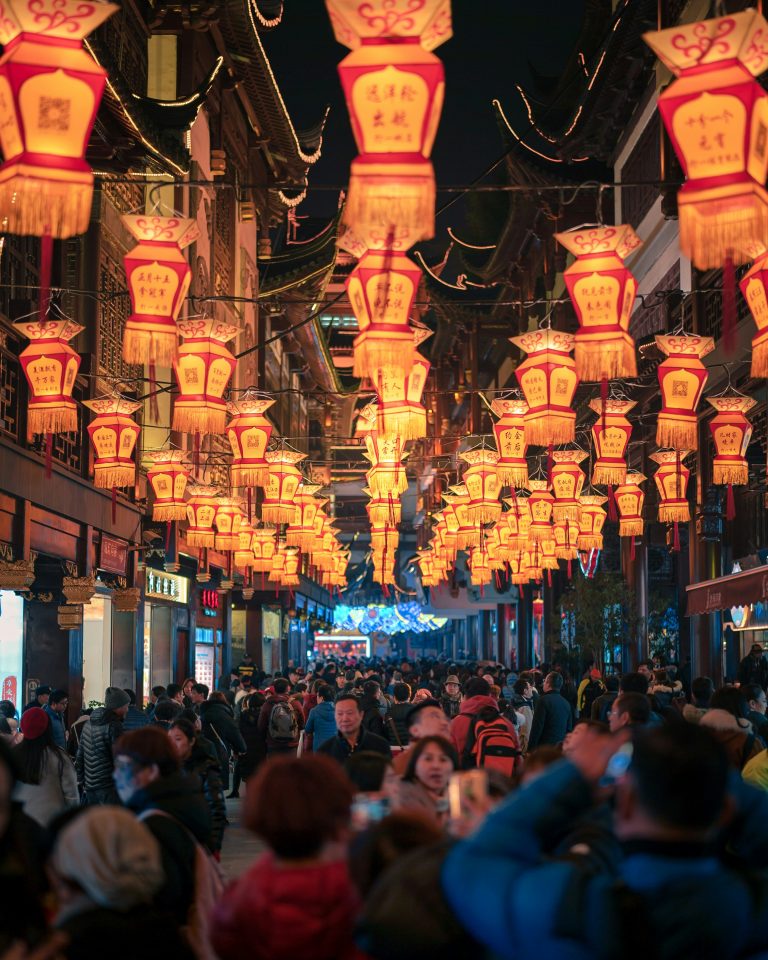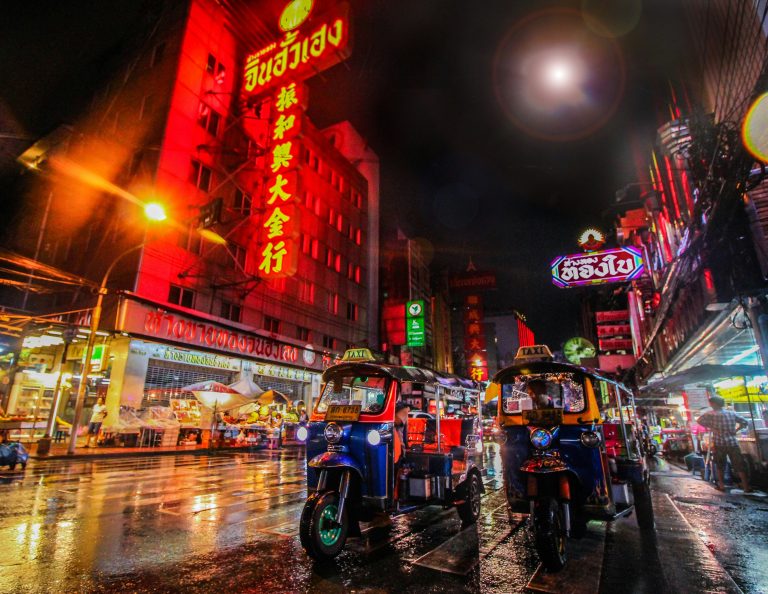
Is hospitality a gift or our duty from God? Should churches welcome outsiders as a ministry pursuit or as a mandate to obey? Is making room for foreigners in our busy lives God’s command or God’s promise? In the Bible, we find that hospitality is infused with all of these dimensions. As portrayed in both the Passover and the Lord’s Supper, hospitality is a spiritual grace that transforms strangers into friends. As Christine Pohl writes in her book Making Room, “Hospitality is… fundamental to Christian identity.” I have spent much time and effort to persuade churches (some holding a geographic, rather than a biblical definition of world missions) that welcoming international students among us is valid “global-local” missions. I remind churches that, while God calls some Christians to traditional foreign missions, he commands all Christians to “practice hospitality” according to Romans 12:13. Not every Christian is gifted or called by God to leave a familiar place and take Christ’s gospel to a foreign place. But God calls all Christians to welcome outsiders into our ordinary daily lives, homes, and churches – into our covenant communities.
The second Great Commandment flows out of God’s mandate to his people Israel in Leviticus 19:34, “You shall treat the stranger who sojourns with you as the native among you, and you shall love him as yourself, for you were strangers in the land of Egypt: I am the Lord your God.” We are often tempted to reduce the full force of God’s requirements to something that is more manageable. No one except Jesus can perfectly fulfill the standard of loving God with all of our heart, soul, mind, and strength, so we reduce that high demand to something that we are easily able to do. In the same way, when we hear God’s command to “…love your neighbor as yourself,” we may seek to justify ourselves like the law expert in Luke 10:29 by asking Jesus, “And who is my neighbor?” We seek to limit our neighborhoods (and therefore limit our welcoming love) to people who are just like us.
I have found that God’s gospel is the most powerful motivation for all Christian service. What God has done for us in Jesus Christ is the only sustainable, renewable energy source for obeying all of the Lord’s commands – including Biblical hospitality. God’s work for us, and not our own, is the fuel for the good works God has prepared for us to do according to Ephesians 2:8-10. The bottom line is that God’s own gracious and sacrificial hospitality to us in Jesus Christ is what compels us, wholeheartedly, to reflect his welcoming love to outsiders, strangers, and foreigners. When we limit our love to people who are like us, we forget that we ourselves were once strangers and foreigners to God’s kingdom. Hospitality is a ministry of graciousness that flows out of our experience of God’s grace, our identity in Christ.
How has the God of all grace worked in history to form for himself a gracious and welcoming people? As novelist John Gardner has written, “There are only two plots to all the stories… a stranger came to town, and someone went on a journey.” As God’s story, the Bible is not about a human quest, but rather about God’s guest. Throughout God’s story, the Lord persistently sent “strangers to town” who came among his people. Ultimately, God sent his own Son, the ultimate outsider, to redeem us as family.
Consider a New Testament example, the coming of the Magi or “wise men from the East.” We read in Matthew 2:1-3, “Now after Jesus was born in Bethlehem of Judea… behold! Wise men from the east came to Jerusalem, saying, ‘Where is he who has been born king of the Jews?… When Herod the king heard this, he was troubled, and all Jerusalem with him.” Notice the little interjection “behold.” When the foreigners arrived in the Jewish capital, it was totally unexpected. Similarly, the arrival of 800,000 international students on American campuses is remarkable. Also notice the response to the sudden appearance of foreign astronomers. Herod was “…troubled, and all Jerusalem with him.” We can understand that Herod was threatened by the news of a rival newborn king; the Jewish population did not love Herod. But we read “…all Jerusalem was troubled.” The word “troubled” means agitated, emotionally shaken, or disrupted. In other words, the arrival of these foreigners shook up the covenant people.
What was God doing? The Lord sent Persian Magi as disruptions of grace. The arrival of foreigners among us is God’s gospel memo to his people to remind us that God’s promise of salvation is not only for us and for our children, but also for those who are far off, for as many as the Lord calls. Acts 2:38-39 states, “And Peter said to them, ‘Repent and be baptized every one of you in the name of Jesus Christ for the forgiveness of your sins, and you will receive the gift of the Holy Spirit. For the promise is for you and for your children and for all who are far off, everyone whom the Lord our God calls to himself.’”
In the centuries prior to the coming of Jesus Christ, God sent his ancient people repeated disruptions of grace through the arrival of various resident-foreigners. One example is Rahab the prostitute. She is a reminder that God’s story is about grace! The Canaanite harlot confessed her faith in the Lord, the God of Israel. Joshua 6:25 tells us that as a result, “Rahab the prostitute and her father’s household and all who belonged to her, Joshua saved alive. And she has lived in Israel to this day…” As God’s story continued to unfold, Rahab became the mother of Boaz. In turn Boaz became kinsman-redeemer for the Old Testament’s most famous resident-foreigner, Ruth from Moab, who had immigrated to Israel with her beloved mother-in-law, Naomi. After their marriage, Boaz and Ruth became the parents of Obed, who became the father of Jesse. And so resident-foreigners are registered in the human genealogy of Jesus.
Have you forgotten your own former immigrant status? In Exodus 23:9, God reminded Israel, “You know the heart of a sojourner, for you were sojourners in the land of Egypt.” Ephesians 2:11-13 reminds you, “Therefore remember that at one time you Gentiles in the flesh… were at that time separate from Christ, alienated from the commonwealth of Israel and strangers to the covenants of the promise, having no hope and without God in the world. But now in Christ Jesus you who once were far off have been brought near by the blood of Christ.” God reminds the Christian church that we were foreigners to the covenants of the promise. How can we forget? God has brought us near, into his kingdom, through the death of Christ. So we welcome others, as Christ has welcomed us, for the glory of God.
Abraham and Sarah lived as sojourners in the land God promised to them. “By faith he went to live in the land of promise, as in a foreign land, living in tents…,” as Hebrews 11:9 tells us. They did not live like permanent settlers, but as sojourners. In Genesis 18 and 19, there is a contrast between Abraham’s hospitality to strangers and Sodom’s abuse of sojourners. Regardless of civil immigration policy, we are to live as spiritual children of Abraham. We can learn from resident-foreigners how we should live like sojourners by remembering that our passport is from another place. Philippians 3:20 tells us, “But our citizenship is in heaven, and from it we await a Savior, the Lord Jesus Christ.”
Tepid churches can be transformed spiritually by opening their doors to the Lord who comes as a Stranger as in Matthew 25:35. When churches open doors, Christians discover their place in God’s story for the world and that salvation is not just for people like us. As the Samaritans exclaimed in John 4:42, “…we have heard for ourselves, and we know that this is indeed the Savior of the world.” Hospitality is the Biblical basis for outreach to internationals among us. It is not simply an “alternative form” of missions; it is God’s command to all Christians. Have you experienced God’s gracious hospitality in Jesus Christ? Then show welcoming hospitality to others!
Al LaCour serves as the nationwide director for Reformed University Fellowship – International. Al equips churches and campus ministries to “welcome the nations and equip kingdom ambassadors.” Al is a graduate of Georgia Tech and Westminster Seminary. He served as a church planter and senior pastor of four churches before transitioning to international student ministry.































